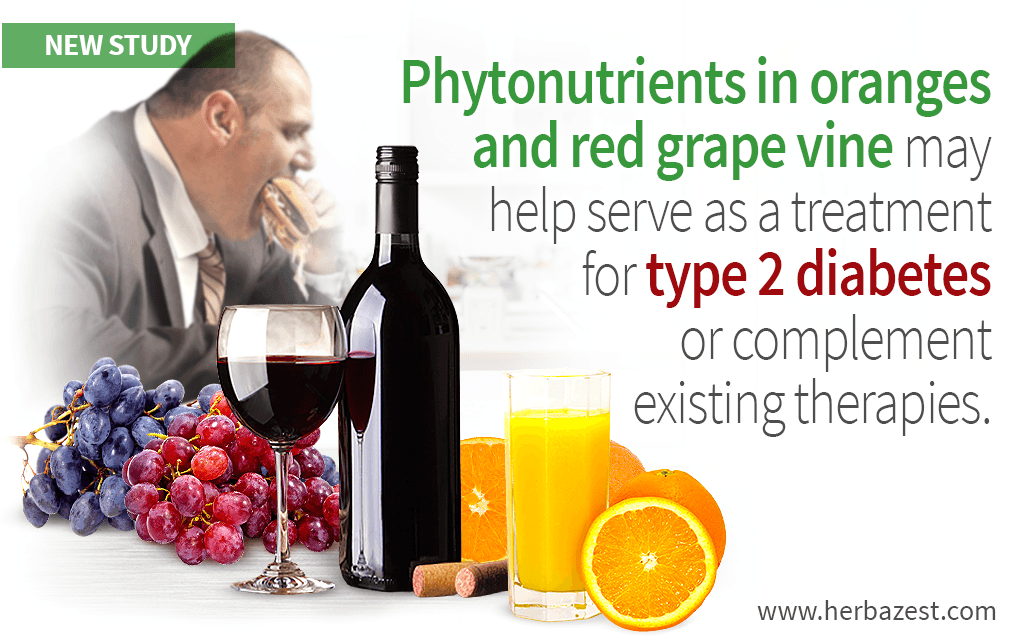As insulin resistance, obesity, and diabetes continue to be a great public health concern, researchers are seeking new approaches to treatment and prevention. It turns out that compounds derived from fruits may serve as such a solution. A team of scientists at the University of Warwick found that phytocompounds in oranges and red grape vine can help reduce blood sugar levels in a novel way. This study was published in Diabetes, one of the peer-reviewed journals of the American Diabetes Association.
The Study
This two-part study began with the researchers' hypothesis that metabolic and cardiovascular health would be improved with increased levels of Glo1, an enzyme in the body that breaks down a byproduct of sugar metabolism that can cause damage in diabetes. The researchers screened foods for compounds that could potentially increase Glo1 production. They identified trans-resveratrol in red grapes and hesperetin in oranges as good candidates.
The second part of the study was a small crossover clinical trial. 29 participants ages 18 - 80 with a high BMI took either the combination of phytonutrients or a placebo once daily for an eight-week span. The researchers analyzed blood samples to measure glucose levels and Glo1 levels, among other parameters.
The Results
Participants who took the trans-resveratrol and hesperetin formula showed an increase in Glo1 activity and a remarkable 5 - 6% decrease in blood glucose levels compared to placebo. They also had greater insulin sensitivity, improved artery function, and decreased inflammation in the blood vessels. The phytonutrient combo was found to be more effective at lowering blood sugar levels than metformin, the current go-to medication for diabetes.
What Does This Mean?
The combination of trans-resveratrol and hesperetin at the clinical doses used in the study could potentially serve as a treatment for type 2 diabetes or complement current therapies. In fact, the researchers' first target is diabetic kidney disease. It is important to note that the dosage of phytonutrients that produced the beneficial effect in the study is much greater than what can be consumed from the raw fruits. Nonetheless, these findings could very well lead to the development of plant-based diabetes medication.
Sources
- Diabetes, Improved glycemic control and vascular function in overweight and obese subjects by glyoxalase 1 inducer formulation, 2016
- University of Warwick, Fruit discovery could provide new treatments for obesity, type 2 diabetes and cardiovascular disease




